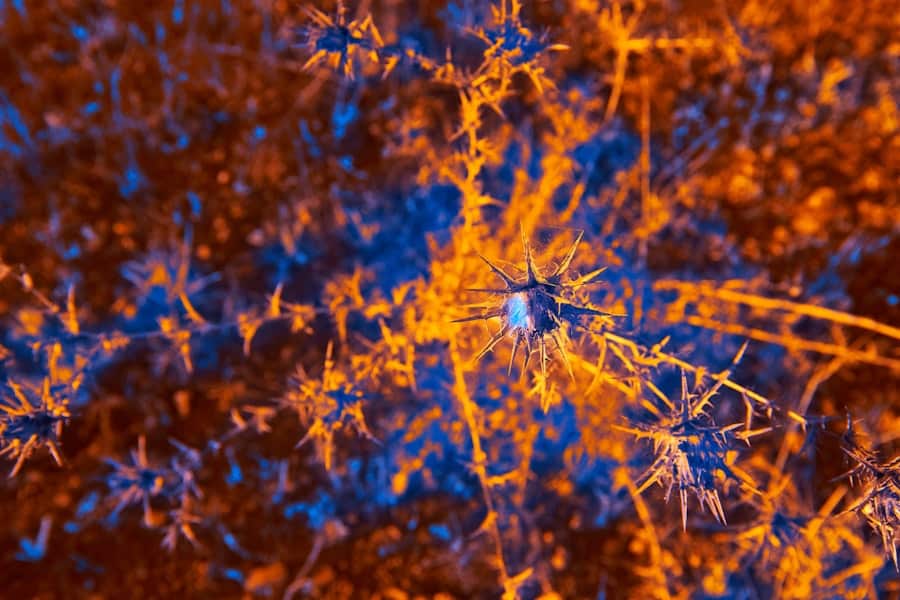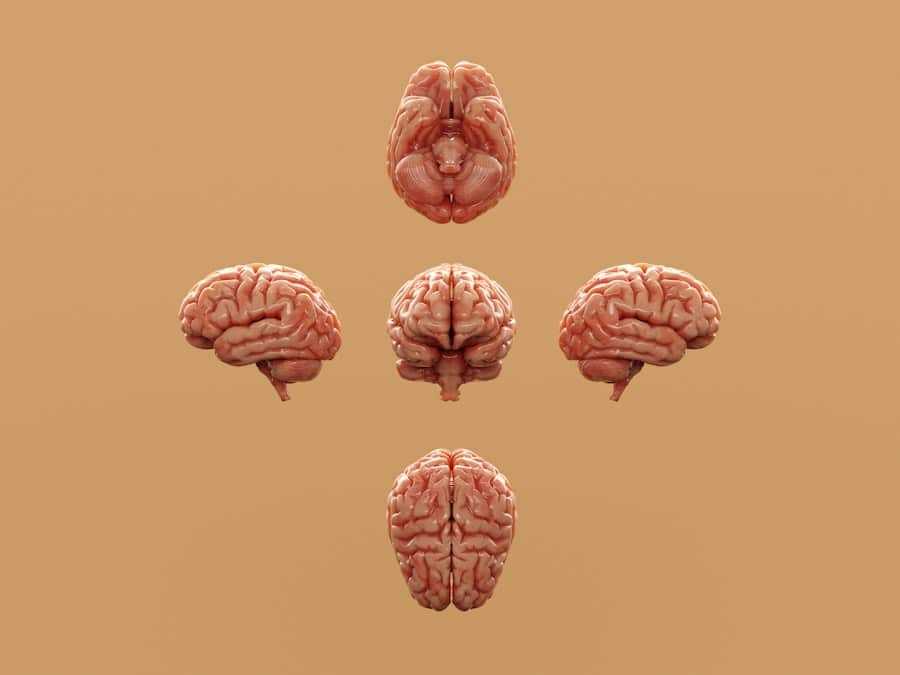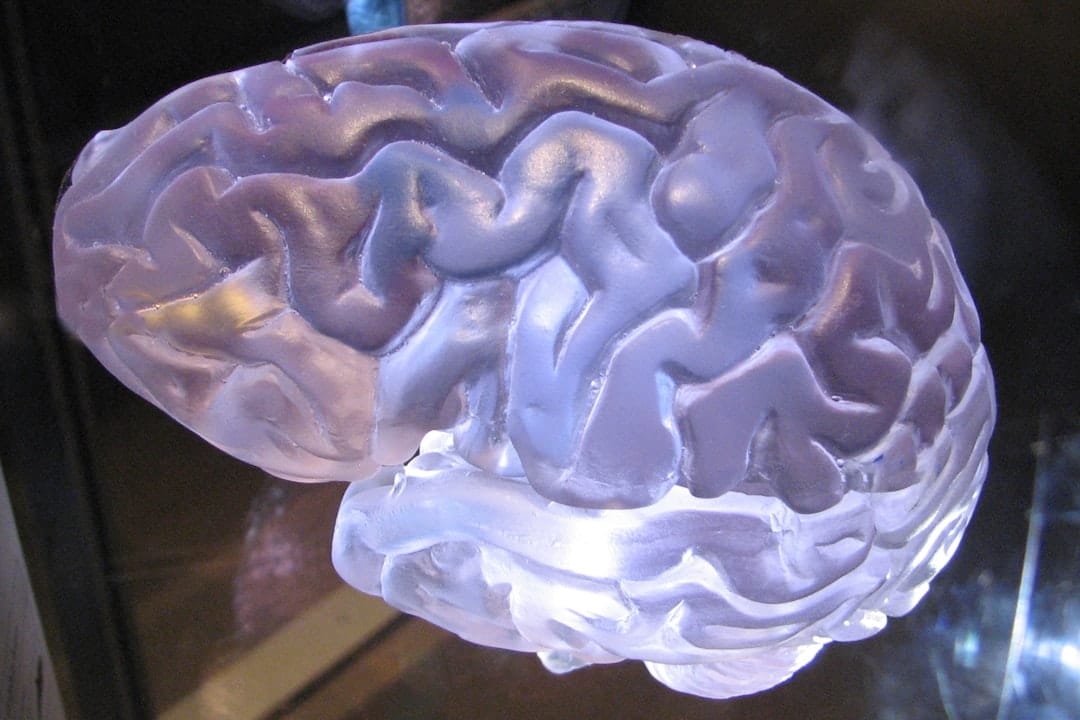Neurotechnology, a rapidly evolving field at the intersection of neuroscience and technology, has garnered significant attention for its potential to enhance cognitive functions such as memory and focus. This interdisciplinary domain encompasses a variety of tools and techniques designed to interface with the nervous system, enabling researchers and practitioners to better understand and manipulate brain activity. The implications of neurotech are profound, as they promise not only to improve individual cognitive performance but also to address broader societal challenges related to mental health, education, and aging.
The impact of neurotechnology on memory and focus is particularly noteworthy in an age where information overload is commonplace. As individuals navigate an increasingly complex world filled with distractions, the ability to concentrate and retain information becomes paramount. Neurotech offers innovative solutions, ranging from brain-computer interfaces (BCIs) to neurofeedback systems, that can potentially enhance these cognitive abilities.
By harnessing the power of technology to augment human cognition, neurotech is poised to revolutionize how we approach learning, productivity, and mental well-being.
Key Takeaways
- Neurotech is a rapidly advancing field that has the potential to significantly impact memory and focus.
- Understanding the science behind neurotech and memory enhancement involves exploring the brain’s complex neural networks and how they can be manipulated.
- Neurotech plays a crucial role in improving focus and concentration by targeting specific brain regions and enhancing cognitive function.
- Neurotech devices and tools can enhance memory retention through techniques such as neurofeedback and transcranial magnetic stimulation.
- Neurotech interventions offer promising solutions for age-related memory decline, providing hope for older adults experiencing cognitive decline.
Understanding the Science Behind Neurotech and Memory Enhancement
At the core of neurotechnology lies a deep understanding of the brain’s structure and function. Memory enhancement through neurotech is grounded in the principles of neuroplasticity—the brain’s ability to reorganize itself by forming new neural connections throughout life. This adaptability is crucial for learning and memory retention, as it allows individuals to acquire new skills and knowledge.
Neurotech leverages this phenomenon by employing various methods to stimulate specific brain regions associated with memory processing. One prominent approach involves the use of transcranial magnetic stimulation (TMS), a non-invasive technique that uses magnetic fields to stimulate nerve cells in the brain. Research has shown that TMS can enhance memory performance by targeting areas such as the prefrontal cortex, which plays a critical role in working memory and executive function.
Studies have demonstrated that individuals receiving TMS exhibit improved recall abilities and enhanced cognitive flexibility, suggesting that this technology can effectively bolster memory capabilities.
The Role of Neurotech in Improving Focus and Concentration

In addition to memory enhancement, neurotechnology plays a vital role in improving focus and concentration. The modern world presents numerous distractions that can hinder our ability to concentrate on tasks, leading to decreased productivity and increased stress levels. Neurotech offers innovative solutions to combat these challenges by providing tools that help individuals train their attention and maintain focus over extended periods.
One such tool is neurofeedback, a technique that allows individuals to receive real-time feedback on their brain activity. By using electroencephalography (EEG) to monitor brain waves, neurofeedback systems can help users learn how to regulate their mental states. For instance, individuals can be trained to increase beta wave activity, which is associated with alertness and concentration, while decreasing theta wave activity, linked to relaxation and daydreaming.
Research has shown that participants who engage in neurofeedback training often report significant improvements in their ability to concentrate on tasks, leading to enhanced academic and professional performance. Moreover, wearable neurotech devices are emerging as practical solutions for enhancing focus in everyday life. These devices often incorporate features such as auditory stimulation or light therapy designed to promote alertness and reduce fatigue.
For example, some wearables utilize binaural beats—auditory illusions created by playing two slightly different frequencies in each ear—to encourage a state of heightened focus. Users have reported increased productivity and improved task completion rates when using these devices during work or study sessions.
How Neurotech Devices and Tools Can Enhance Memory Retention
Neurotech devices designed for memory enhancement are becoming increasingly sophisticated, offering users a range of options for improving memory retention. One notable example is the use of digital memory aids that leverage artificial intelligence (AI) algorithms to personalize learning experiences. These tools analyze user behavior and performance data to tailor content delivery, ensuring that information is presented in a manner that maximizes retention.
For instance, spaced repetition software (SRS) employs algorithms that determine the optimal intervals for reviewing information based on an individual’s learning curve. By strategically scheduling reviews of material just before it is likely to be forgotten, SRS enhances long-term retention. This method has been widely adopted in language learning applications like Anki and Duolingo, where users can efficiently memorize vocabulary and grammar rules through scientifically-backed techniques.
In addition to software solutions, physical neurotech devices such as nootropic supplements are gaining popularity for their potential cognitive benefits. These substances are believed to enhance neurotransmitter activity or promote neurogenesis—the growth of new neurons—thereby improving memory retention. While some nootropics have shown promise in clinical studies, it is essential for users to approach these substances with caution, as the efficacy and safety profiles can vary significantly among individuals.
Neurotech Interventions for Age-Related Memory Decline
As populations age globally, addressing age-related memory decline has become a pressing concern. Neurotechnology offers promising interventions aimed at mitigating cognitive decline associated with aging. One approach involves cognitive training programs that utilize gamification techniques to engage older adults in mentally stimulating activities.
These programs often incorporate elements of competition and reward systems to motivate users while targeting specific cognitive skills such as memory recall and processing speed. Research has indicated that older adults who participate in cognitive training programs experience improvements in memory performance compared to those who do not engage in such activities. For example, studies have shown that participants who completed a series of computer-based memory exercises demonstrated enhanced verbal memory skills over time.
These findings suggest that neurotechnology can play a crucial role in maintaining cognitive health among aging populations. Another promising avenue involves the use of neuromodulation techniques such as deep brain stimulation (DBS). Originally developed for treating movement disorders like Parkinson’s disease, DBS has shown potential for addressing cognitive deficits associated with aging.
By delivering electrical impulses to specific brain regions involved in memory processing, DBS may enhance synaptic plasticity and improve overall cognitive function. Ongoing research is exploring the efficacy of DBS in older adults with mild cognitive impairment or early-stage Alzheimer’s disease.
The Potential Risks and Limitations of Using Neurotech for Memory and Focus Enhancement

While the potential benefits of neurotechnology for enhancing memory and focus are substantial, it is essential to consider the associated risks and limitations. One significant concern revolves around the ethical implications of manipulating brain function through technology. As neurotech becomes more accessible, questions arise regarding consent, privacy, and the potential for misuse.
For instance, if cognitive enhancement becomes widely available, it may create disparities between those who can afford such technologies and those who cannot. Additionally, there are concerns about the long-term effects of using neurotech devices on brain health. While many interventions are deemed safe in controlled settings, the long-term consequences of regular use remain largely unknown.
Some studies have suggested that excessive reliance on external devices for cognitive tasks may lead to diminished intrinsic motivation or reduced natural cognitive abilities over time. Moreover, the effectiveness of neurotech interventions can vary significantly among individuals due to factors such as genetics, baseline cognitive function, and environmental influences. What works for one person may not yield the same results for another, making it crucial for users to approach these technologies with realistic expectations.
Practical Applications of Neurotech for Memory and Focus Improvement
The practical applications of neurotechnology for enhancing memory and focus are diverse and continually expanding across various sectors. In educational settings, institutions are increasingly integrating neurotech tools into their curricula to support student learning. For example, some schools have adopted brainwave monitoring systems that provide educators with insights into students’ attention levels during lessons.
This data allows teachers to adjust their instructional strategies in real-time, fostering a more engaging learning environment. In corporate environments, companies are exploring the use of neurofeedback training programs to boost employee productivity and well-being. Organizations have begun implementing workshops where employees can learn techniques for managing stress and improving focus through neurofeedback sessions.
By investing in employee cognitive health, businesses aim to enhance overall performance while promoting a culture of well-being. Healthcare professionals are also leveraging neurotechnology in therapeutic settings. Cognitive rehabilitation programs utilizing virtual reality (VR) environments are being developed for individuals recovering from traumatic brain injuries or strokes.
These immersive experiences allow patients to engage in targeted cognitive exercises while receiving real-time feedback on their progress. Such applications highlight the potential of neurotech not only for enhancement but also for rehabilitation purposes.
Future Developments and Trends in Neurotech for Memory and Focus Enhancement
The future of neurotechnology holds exciting possibilities for further advancements in memory and focus enhancement. As research continues to unravel the complexities of the human brain, we can expect more sophisticated tools that integrate artificial intelligence with neurofeedback systems. These innovations may enable personalized cognitive training programs that adapt dynamically based on real-time brain activity data.
Moreover, advancements in wearable technology will likely lead to more discreet and user-friendly devices capable of monitoring cognitive states throughout daily life. Imagine a future where smart glasses equipped with EEG sensors provide users with insights into their attention levels during meetings or study sessions, offering suggestions for breaks or focus-enhancing techniques based on their mental state.
As we navigate the ethical landscape surrounding cognitive enhancement, it will be essential to establish guidelines that prioritize user safety while promoting equitable access to these transformative tools. In conclusion, the trajectory of neurotechnology promises a future where memory enhancement and improved focus become increasingly attainable goals for individuals across various demographics. As we continue to explore the potential of this field, it is imperative to balance innovation with ethical considerations, ensuring that advancements serve humanity’s best interests while fostering cognitive well-being for all.
In exploring the advancements in neurotechnology, particularly in enhancing memory and focus, it’s essential to consider the tools that complement these innovations. For instance, selecting the right tablet can significantly impact how effectively one can engage with neurotech applications designed for cognitive enhancement. An article that delves into this topic is What is the Best Tablet to Buy for Everyday Use?
This piece provides insights into choosing a tablet that can support various applications, including those related to neurotech, thereby optimizing the user’s experience and outcomes in memory and focus enhancement.
FAQs
What is neurotech?
Neurotech refers to technology that is designed to interact with the brain and nervous system. This can include devices such as brain-computer interfaces, neurostimulation devices, and neurofeedback systems.
How does neurotech enhance memory and focus?
Neurotech can enhance memory and focus through various methods such as neurostimulation, neurofeedback, and cognitive training. These technologies can target specific areas of the brain to improve cognitive function and enhance overall mental performance.
What are some examples of neurotech devices for enhancing memory and focus?
Examples of neurotech devices for enhancing memory and focus include transcranial direct current stimulation (tDCS) devices, neurofeedback systems, and wearable EEG devices. These devices can be used to improve memory, attention, and cognitive function.
Are there any risks associated with using neurotech for memory and focus enhancement?
While neurotech has shown promise in enhancing memory and focus, there are potential risks associated with its use. These can include side effects from neurostimulation, as well as potential ethical considerations related to the use of brain-computer interfaces.
Is neurotech widely available for enhancing memory and focus?
Neurotech for enhancing memory and focus is still relatively new and may not be widely available to the general public. However, research and development in this field are ongoing, and it is likely that neurotech will become more accessible in the future.

